Hamada Helal’s catchy Ashrab Shai became a hit in early 2019, now with over 60 million views on YouTube alone.
Have fun singing along while learning the lyrics. Below, you can see the Arabic script with tashkeel. Click on any line to expand it to reveal the English translation and language notes.
My mom came and woke me up in the morning while I was asleep in bed.
صحَّى to wake up
و انا when I
مِعاد appointed time, time (for)
قام to get up
بلاش (+ noun, verbal noun, or bare imperfect verb): No __ing!; Stop __ing!
I told her, “Okay, I’m up! But I’m groggy. How can I wake up?”
مِسقّط sluggish, sleepy, groggy, lazy
فاق to wake up fully, return to a usual state of consciousness, overcome grogginess
The bare imperfect (verb without بِـ
The bare imperfect is used again in the response: اشْرب (I’ll drink) = عايِز اشْرب (I want to drink)
x4
نِزِل to descend, go down; here it’s used to mean ‘leave the house’ as most people live in apartments, so going out means going downstairs.
لِحِق to catch, make it on time
طِلِع to ascend; get on/in (a vehicle)
رِكِب also means get on/in, and also ride; here the ـُه (it) refers to the bus
فى عِزّ in the peak of (for example: فى عِزّ الشِّتا in the dead of winter; فى عِزّ اللّيْل in the middle of the night)
حرّ heat
دِماغ brain
تهْييس getting high (usually from drugs, but here from heat sickness)
I was pissed off because of the traffic congestion and I got heat stroke.
دمّ blood
اِتْعكّر be disturbed, agitated
كُتْر large amount
زحْمة crowdedness (here: traffic congestion)
الشّمْس كلِتْلُه دِماغُه (lit. the sun ate away his brain) to get sun stroke
I headed to the office and quickly called out to the gofer.
قام (besides meaning to get up, it means to set out, start to do something)
طالِع is the active participle of طِلِع to ascend, go upstairs
ندهْ to call
ساعي is someone who runs errands, does miscellaneous tasks (and in the expression ساعى بريد it’s the mail carrier)
x4
I finished work and said to my friend, “Let’s go to a coffee house.”
قهْوَه (or قهْوَه بلدى) is a traditional Egyptian coffee house where mostly men hang out, drink tea, and may smoke shisha, read the newspaper, play backgammon or cards, etc.
Confusion, mistreatment, exhaustion in the heat (direct sun); my head was exploding.
بهْدِل to confuse, dishevel
اِتْبهْدِل to be confused, stressed out from being overwhelmed (for example: انا اتْبهْدِلْت النّهارْدة في الشُّغْل I was overwhelmed at work today.)
مرْمط be hard on, treat badly
نفوخ crown of the head (but idiomatically just ‘head’)
فجْوَة hole; the idiom here (lit. my head made a hole) means I had a splitting headache. (This is new slang and may not be understood by older Egyptians.)
Then he told me, “Same here. And I wish you hadn’t told me.”
زيّ like, as
زيّك like you
ياريْت (optionally + pronoun suffix)
ما not (without the ـش suffix on the verb after the expression ياريْت)
So, he bummed his friend out by telling him about his awful day since his friend can relate.
x4
عنْد at (someone’s house)
خطيبه fiancee
طافِح الطّين معَ to be exhausted by, be getting a hard time from
But we are very close to get married, only 6 years left!
هانِت means you are very close to doing something. So, let’s say your daughter is feeling bad about her next exams; you can encourage her with “هانِت!” (You’re almost there!)
فاضِل remaining
The sentence means “Just six more years until I get married!” It’s sarcastic. He doesn’t have enough money to get married and he is making fun of that! Six years is a long time.
طريق way, path, so literally: How is your path [to getting married]?
قبْل ما before __ing
اِتْكلِّم to speak
x4
قادِر can
مِش قادِر can’t
Here, he just says “because I can’t”, but it’s an expression to imply that you can’t take it anymore
نِفْسُه + bare imperfect verb = want to, desire to
Since early morning, I’ve been truly exhausted.
مِن صباحية ربِّنا early in the morning [lit. the morning of our Lord]
بهْدلة confusion
My mom came and asked me what happened, why and how.
سأل to ask
ـني me
ليْه why
إزّاي how
I told her, “Mom, before I say even half a word, I want to drink …”
نُصّ half
كلْمة word
What do you want to drink? I’ll have tea.
x8 (And in your head for the rest of the day: ad infinitum! You’re welcome!)



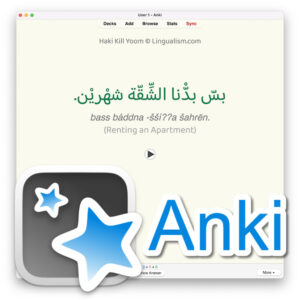
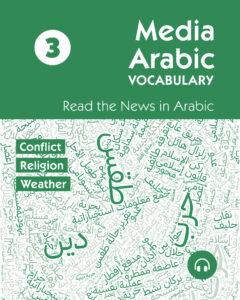
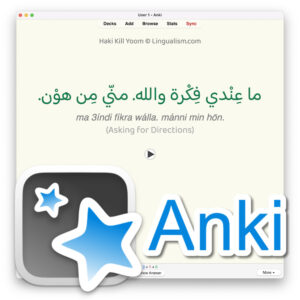
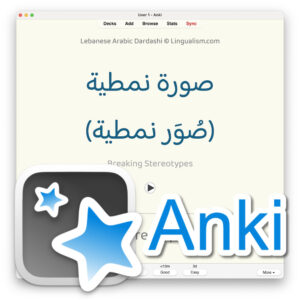
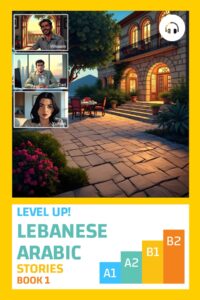
This is a very catchy tune and the text is pretty easy. Nice!
مرحبا بكم
مِن صباحية ربِّنا بهدله بِجدّ، انا تعْبان.
بهدله هنا يعني ايه بضبط
شكرا لكم
I added notes in the lyrics. بهْدله is confusion. It’s the noun form (masdar) of the verb that appears earlier in the song. The “confusion” he feels is from the heat, fatigue, and stress. It doesn’t translate well, but his sentiment is that he’s been tired and having a bad day since the very beginning, early morning.
ايوه . افهم احساس التعب بتاعه 😉 ..بس هنا الكلمة دي “بهدله” مش واضح من انهي مصدر.. مثلا هدل؟؟
I see. It’s a quadriliteral root (a root with FOUR radicals): ب ه د ل
It follows the same pattern as a more common root I’m sure you’re familiar with: ت ر ج م
ترْجِم to translate; ترْجمه translation
بهْدِل to confuse; بهْدله confusion
شكرا جزيلا 🙏🌺
Learning with songs is one of the best ways of learning languages! I have been using this method especially in learning Arabic dialects, very useful.
Love this. I have just started listening to songs that my daughter and future son and low have been sending me from Egypt. I began with one of Ramy Sabry’s songs. But I am def. going to use this one too. Thanks. I would love to see more songs broken down.
Can it be transliterated?
Lol..thanks for the lyrics and all the notes!!
Thanks for the work !!